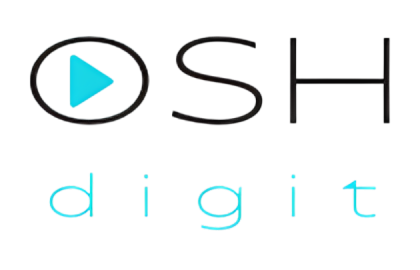Your cart is currently empty!
17. Timing Organization
Organization of the first/second week- pilot project

Time organisation becomes crucial to achieve the targets and positively evaluating the control points (see control points below). As such, an initial organization of the project must be presented in the beginning, which will work as a guideline that can be applied in the primordial phase (1st week) and the subsequent phases or during the PBL.
After being welcomed by the different members of the course, students have a first interaction with the PBL concept which should be an information/formation time destined to ensure the integration of the students into this concept. There, the project theme, team formation, allocation of tutors and project space must be presented to the different teams. It is desirable that the different teams that teams are challenged with a mini-project pilot project during the 1st and 2nd weeks, whose results must be presented by the students at the end of these weeks of work.
In the first week, the teams are expected to explore and investigate state-of-the-art related to the subjects of their projects. Therefore, it is expected that, in this initial time, the students can organize themselves and not only collect the most relevant information about the theme but also that they can be able of evaluating, criticise that information, organise and systematise the most important information, and relate them to the curricular units.
It is important to ensure that the teamwork is systematised and that the students know their responsibilities. The essential skills they should have since that very first moment are coordination, the ability to manage the work team and communique the work devolved to the colleges and coordination team (there is the 1st control point). There is expected that teams can adequately the choice made related to the tools utilised during the process for self-organisation and team organisation. We can see in the following table the time organisation for these first 2 weeks:
Year-round organization
The base schedule should consider the different shifts for better distribution of the teams for the classes, described in the following file:
Control points
The milestones or control points are related to the formal control of the project’s progress, ensuring the work’s adequate rhythm and organisation and that the teams have their liberty. It’s not about monitoring technical work overtime but assuring the right rhythm and distribution/organisation of the work. The essential points of control in the OSHDigit PBL Tool are evidenced in the following table:
| CP | Date | Deliverable |
|---|---|---|
| 1 | 2nd week | Presentation of the Pilot Project (10’ per team + 5’ discussion). |
| 2 | 6th week | Presentation of the progress of the project (10‘ per team) + extended tutorial (15’ per team). |
| 3 | 9th week | Presentation of the results IEM@ProjectNetworking (5´ per team). |
| 4 | 12th week | Delivery of the preliminary report (40 pages). |
| 5 | 14th week | Delivery of the final report (50 pages maximum)) + Prototypes. |
| 6 | 15th week | Final Presentation and Discussion (15’ per team + 30’ discussion). |
This must be respected and it is mandatory to obtain the final project score. All documents should be delivered in electronic format, using the support platform, or in a different format but always discussed and combined by all the teachers involved.
-
10. Index

Students Construction of the coordination team of the project The role of the Tutor Description of the Project Presupposition Skills Development Timing Organization Evaluation Peer Assessment Self-reflection to collect student´s feedback about evaluation Resources Bibliography
-
11. Introduction

The OSHDigit project is an innovative and contemporaneous vision of the learning process and because of that the main objective is the introduction of new methodologies of teaching/learning. This learning concept fits into the teaching-learning model of active or cooperative learning (Lima et al., 2007). With the objective is developing new and refreshing methods of…
-
12. Students

This project includes Occupational Safety and Health students who want to acquire knowledge of the different programmatic contents. It is essential to connect with the team to accompany all development systematically. Having a remote connection and physical availability is imperative because some of the activities can also stimulate the interaction between digital and real realities.…
-
13. Project coordination team

The coordination team is composed of the teachers of the curricular units involved in this project, and that can give support to its development. That involves the tutors related to the different teams, the course director, and sometimes researchers from the educational area. The professors’ essential contribution is giving technical support to achieve the competencies…
-
14. The role of the Tutor

The role played by the tutor is very determinant in the performance of the team because the tutor is responsible for the stimulation of interest and for more detailed and profound research carried out during the learning process. The tutor verifies the capacities development defined by the Project Guide and the presentation of the final…
-
15. Description of the Project

The project developed in this scope does not have a singular answer. The requisite is to be challenging and constructive for the teams involved, and for all individuals. The students need to develop and demonstrate the skills obtained through the different curricular units athwart the project. Topic Usually, the topic is suggested by the university…
-
16. Presupposition Skills Development

The skills that should be developed by the students through the development of this project are illustrated in the following image: Essentially, it is intended that students can acquire knowledge from the different areas involved but furthermore that they can establish a relationship between the concepts and the subjects of all the curricular units. Cross…
-
17. Timing Organization

Organization of the first/second week- pilot project Time organisation becomes crucial to achieve the targets and positively evaluating the control points (see control points below). As such, an initial organization of the project must be presented in the beginning, which will work as a guideline that can be applied in the primordial phase (1st week)…
-
18. Evaluation

The final punctuation/score of the student is dependent on the methodology adopted by the different disciplines involved. This can depend on multiple and distributed moments of evaluation like tests, team papers, class participation, etc. This should be designed by the teachers and communicated to the students during the initial moments of each curricular unit. The…
-
19. Peer Assessment

Involving students in evaluation can be beneficial for the learning process. Falchikov (1995) defines peer assessment as an evaluative process through which teams of individuals rate their peers/mates. This assessment practice uses rating instruments or checklists designated to fill teams’ particular needs (Dochy et al., 1999). However, students and teachers still feel insecure about this…
